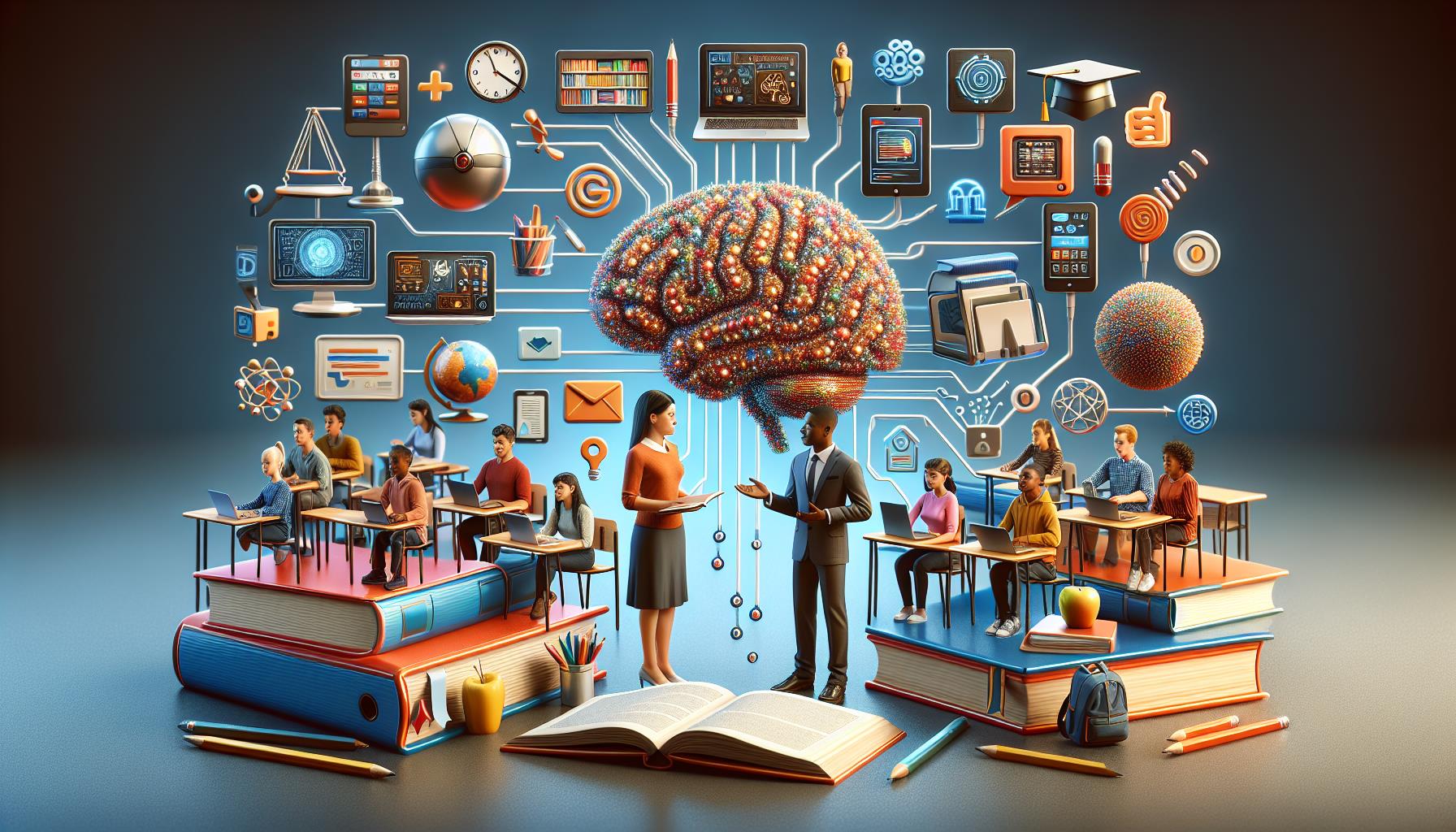How Teachers, Students, and Education Professionals Will Gain from AI
Introduction: A New Dawn for Education
The rise of artificial intelligence (AI) has sparked debates about its role in education. While some fear that AI could diminish human-led teaching, the reality is far more optimistic. AI is not here to replace teachers, undermine student learning, or disrupt educational institutions. Instead, it is a tool designed to enhance the way we teach, learn, and manage educational environments.
From streamlining administrative work to personalizing student learning and optimizing campus operations, AI is proving to be a powerful partner—not a competitor—in education. The key to harnessing its full potential lies in understanding how it benefits teachers, students, and non-academic staff, ensuring that AI complements human expertise rather than replaces it.
Empowering Teachers: AI as an Assistant, Not a Replacement
Reducing Workload, Increasing Teaching Time
Educators spend a significant portion of their time on grading, lesson planning, and administrative tasks. AI-powered tools are now automating these repetitive duties, giving teachers more time to focus on mentorship, critical thinking, and student engagement.
- AI-assisted grading tools like Gradescope and Turnitin automate assessments, ensuring fairness while reducing teacher workload.
- Lesson planning AI platforms generate customized syllabi, quiz questions, and multimedia content, saving hours of preparation.
- Predictive analytics flag struggling students early, allowing educators to provide timely intervention.
“AI helps me focus on guiding students, not just managing paperwork,” says Dr. Emily Watson, a high school teacher using AI-enhanced grading.
Creating Personalized Learning Experiences
Traditional classrooms often struggle with a one-size-fits-all approach, but AI enables adaptive learning, ensuring every student learns at the right pace.
- AI tutoring systems like Google’s Socratic and Carnegie Learning offer personalized explanations, reinforcing difficult concepts.
- Real-time feedback provides students with instant performance insights, allowing teachers to adjust lessons dynamically.
- Automated language translation breaks barriers for non-native speakers, making classrooms more inclusive.
By using AI to tailor education to individual needs, teachers become facilitators of deeper understanding, rather than mere content deliverers.
Professional Growth and Research Support
AI is also transforming professional development for educators.
- AI-driven research tools (e.g., Semantic Scholar, Elicit) help teachers and academics find relevant studies in seconds.
- Virtual training simulations provide educators with AI-based coaching on classroom management and teaching strategies.
“The biggest advantage of AI is that it lets me keep learning and improving as an educator,” says Professor Martin Lane, an education researcher.
Enhancing Student Learning: AI as a Guide, Not a Shortcut
Customized Learning Paths for Every Student
AI adapts lessons based on a student’s learning speed, strengths, and weaknesses, ensuring that no one falls behind.
- Adaptive learning platforms like Duolingo and Coursera adjust lesson difficulty dynamically.
- AI-powered tutors provide 24/7 assistance, helping students with complex subjects like math and science.
AI helps students retain knowledge more effectively, making learning a more engaging, personalized experience.
Smarter Exam Preparation and Skill Development
AI-powered platforms allow students to practice smarter, not harder.
- AI-generated test simulations adapt to individual progress, ensuring targeted preparation for standardized exams.
- Skill-building AI platforms like LeetCode (for coding) and LinkedIn Learning help students develop career-relevant abilities.
“With AI, I don’t just memorize information—I understand it better,” says university student Mark Patel.
AI as a Career Coach
AI is also helping students make informed career decisions.
- AI-driven career counseling platforms analyze student strengths and suggest suitable professions.
- Resume-building AI tools optimize CVs based on industry trends.
By equipping students with practical skills and career insights, AI is preparing them for success beyond the classroom.
Improving Education Administration: AI as a Support System, Not a Replacement
AI is revolutionizing school and university operations, making institutions more efficient and resourceful.
Streamlining Administrative Work
AI reduces the burden on school staff by handling routine tasks, freeing up time for strategic initiatives.
- AI chatbots handle common inquiries about admissions, course registration, and deadlines.
- Smart scheduling systems optimize faculty and student timetables.
“AI has made administration more efficient, allowing us to focus on student success, not just logistics,” says Rachel Wong, a university administrator.
Enhancing Campus Security and Student Well-Being
AI is also improving student safety and mental health support.
- AI-powered surveillance systems help monitor campus security while respecting privacy.
- Mental health AI assistants provide students with counseling resources and crisis intervention.
Optimizing Resources and Costs
AI helps institutions predict trends, allocate budgets wisely, and reduce inefficiencies.
- Predictive analytics forecast student enrollment, helping universities plan resources effectively.
- AI-driven energy management reduces costs by optimizing campus utilities.
By cutting unnecessary expenses and improving efficiency, AI ensures that education remains affordable and accessible.
Conclusion: AI as a Partner in Education’s Future
AI is not a threat to education—it is an opportunity. By embracing AI as a tool for enhancement, not replacement, the education sector can create a smarter, more personalized, and more efficient learning experience.
- Teachers gain more time for student engagement and research.
- Students receive tailored learning experiences and career guidance.
- Administrators manage institutions more effectively, reducing inefficiencies and improving accessibility.
The future of education is not about choosing between AI and human expertise—it is about ensuring that they work together to build a stronger, more inclusive learning environment. AI is here to support, not supplant, and when used wisely, it has the power to improve education for everyone.
